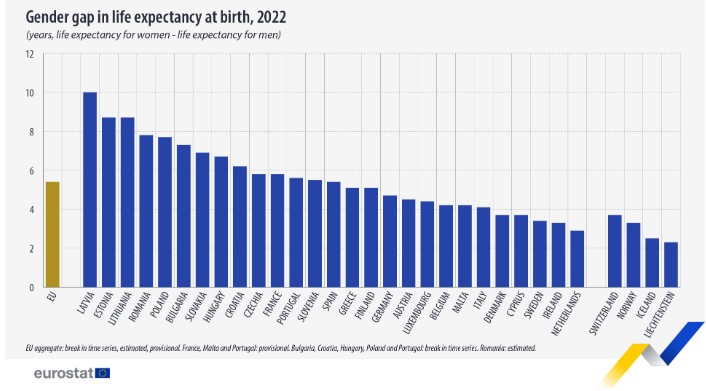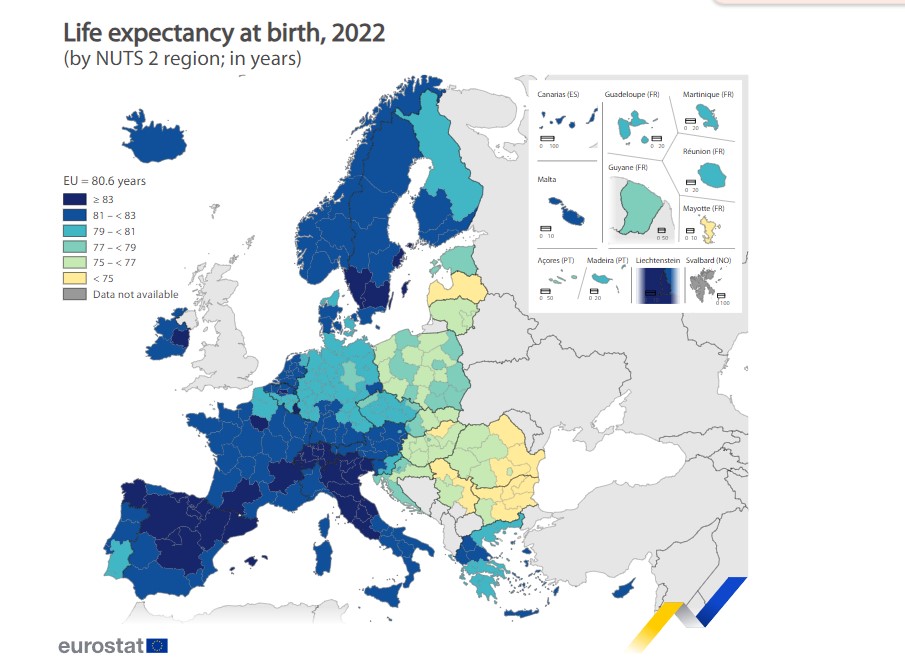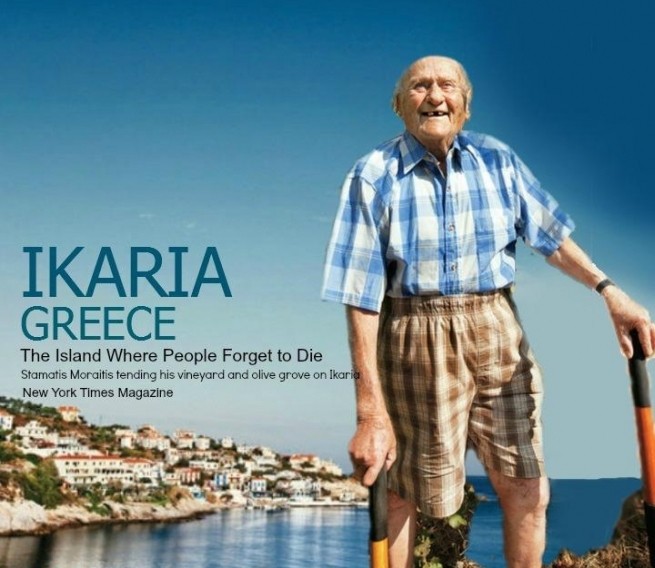As demographics change, life expectancy in EU will become a more important topic as society faces the serious challenge of an aging population and a marked decline in the birth rate.
Life expectancy estimates are important tool for monitoring welfare of society, and for the development of European policies.
In 2022, life expectancy at birth in the EU was 80.6 years, up 0.5 years from 2021. It is worth noting that since 2002, the highest life expectancy in the EU countries was recorded in 2019, when life expectancy reached 81.3 years.

As for Greece, in the last two years there has been slight decrease in life expectancy. In particular, from 80.8 years in 2022, it reached 80.6 years in 2024.
According to Eurostat, life expectancy for men is at least five years lower than for women – 5.1 years in Greece and 5.4 in the EU. Thus, life expectancy for men in Greece is 78.3 years, and for women 83. 4 years, while in the EU – 77.9 and 83.3 years, respectively.
The data by region shows that in Greece, residents live longer in Epirus (82.7 years), North Aegean region (82.3), South Aegean region (81.7) and Crete (81.7) . On the other hand, the life expectancy of the inhabitants of Eastern Macedonia-Thrace (79.9 years), Central Macedonia (80.2), Western Greece (80.3) and the Ionian Islands (80.5) is shorter.
In the EU, the highest life expectancy was in the region of Madrid (85.2 years), Trento in Italy (84.4), Ile-de-France (84.1), Stockholm (84) and Forel de Navara (83 ,9).

The lowest rates were found in four regions of Bulgaria (from 72.3 to 74.1 years) and one region of Hungary (74.1 years).
Read everything that was previously known about the phenomenon of the inhabitants of Ikaria Here.







More Stories
May Day strikes throughout Greece, operating hours of public transport are limited to the maximum (additions are being added)
Who likes an adventure holiday?
Identification of Ukrainian pensioners-2024: 4 ways to avoid being left without money